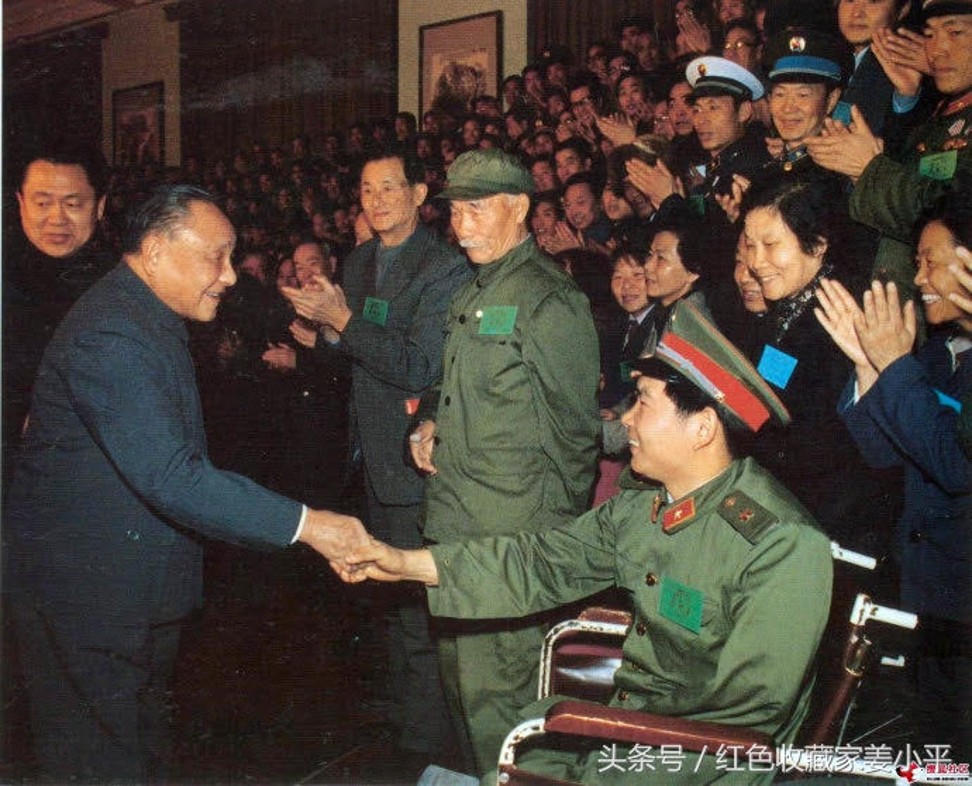
Border war with Vietnam a lingering wound for China’s forgotten soldiers
- Sunday marks the 40th anniversary of the start of the Sino-Vietnamese war but there will be no commemorations in Beijing
- Ex-soldiers say they just want to be acknowledged for the sacrifices they and the 7,000 who died – many of them teenagers – made for their country
For retired Chinese soldier Zhong Jianqiang, the battles of the 1979 Sino-Vietnamese are a distant memory, but his fight for dignity and justice goes on.
Now 60, Zhong was among the 300,000 People’s Liberation Army soldiers who fought in the bloody border war that claimed the lives of nearly 7,000 of his comrades. Although the main conflict lasted less than a month, clashes continued throughout the 1980s until the normalisation of relations between the two neighbours in 1991.
On February 17, 1979, PLA soldiers crossed into northern Vietnam on what Beijing said was a mission “to teach the ungrateful Vietnam” a lesson as it battled the Khmer Rouge in Cambodia.
China was enraged when Hanoi severed diplomatic ties with Beijing – in favour of Moscow – after Mao Zedong refused its request for a 10 billion yuan (US$1.5 billion) loan. According to China, it had already given the Vietnamese 1.3 billion yuan worth of weapons and provided 320,000 soldiers to help it fight the Americans.
While both sides later claimed victory, historians generally agree that China’s mission was unsuccessful because of the huge death toll and the fact it failed to stop Hanoi’s activities in Cambodia.
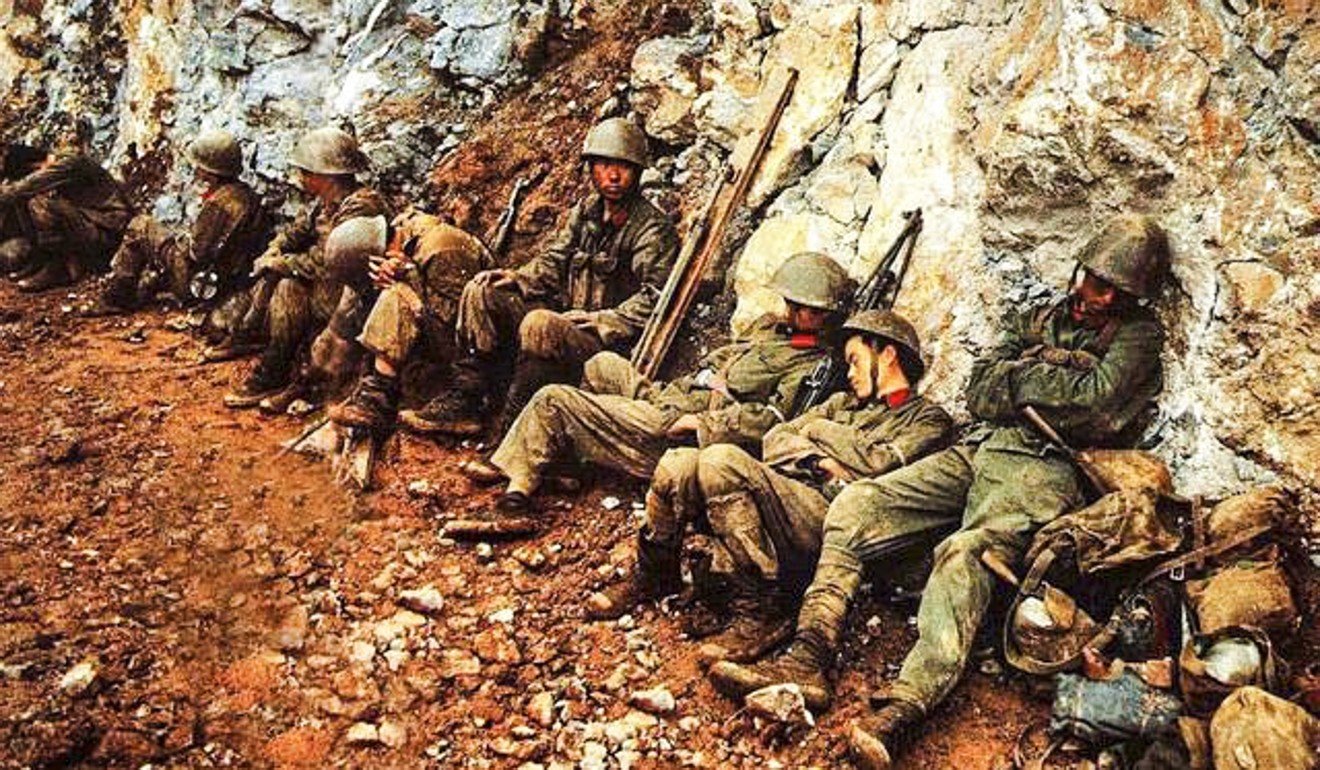
As a result, Beijing has been mostly silent about the war over the past four decades and according to Zhong, who lives in the southern city of Guangzhou, does not want those who fought in it to commemorate its 40th anniversary, which falls on Sunday.
“The government is tapping my phone and watching my every move,” he said in an interview. “So I won’t take part in any public events for the anniversary because I don’t want to cause trouble.”
Veterans in other parts of the country said they too had been warned to stay away from public gatherings and commemorative activities.
Veterans warned not to spoil 91st anniversary party for PLA
“I can understand [the government’s concerns] because [they are afraid that] big public gatherings might turn into protests and that will give them trouble,” said Hu Wei, who heads a group of veterans in Changsha, capital of central China’s Hunan province.
China has about 57 million war veterans and they have traditionally been revered by state media. But in recent years, there have been growing calls for better treatment for retired military personnel.
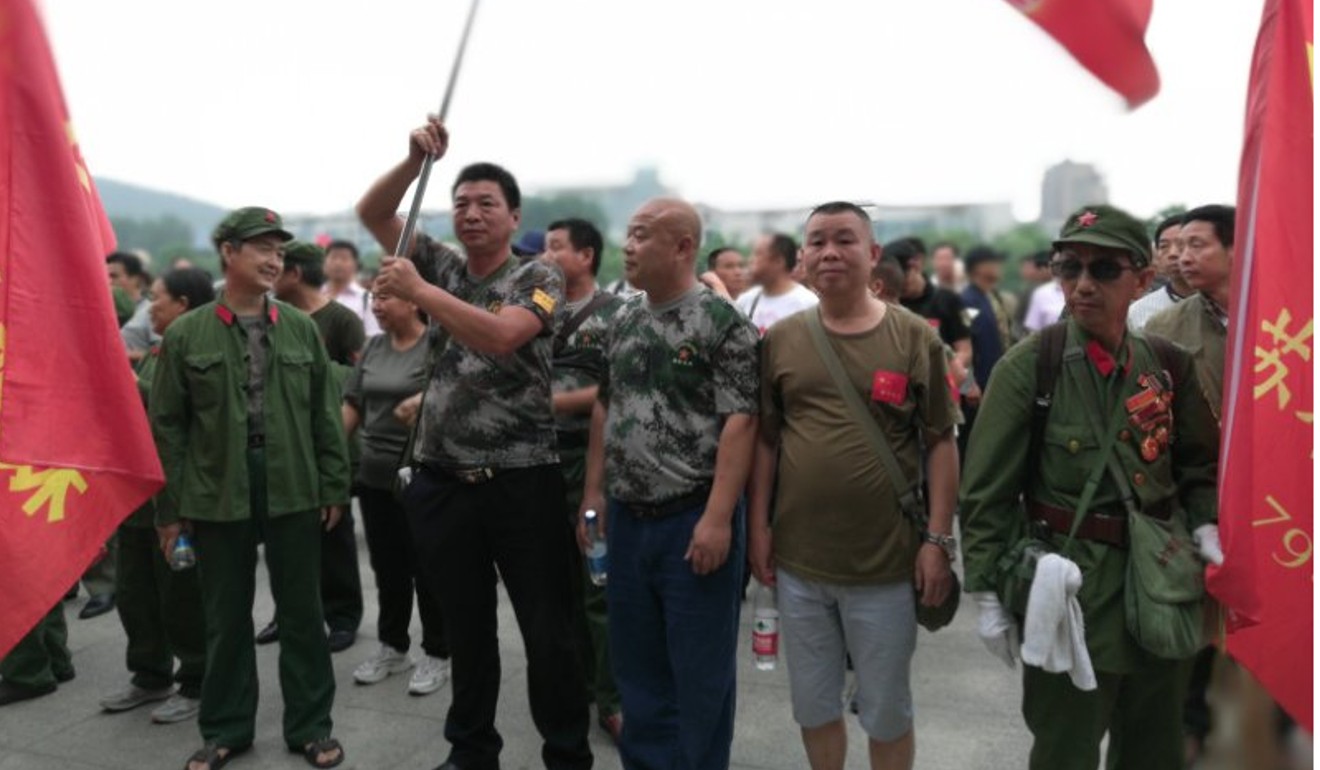
For many, the problem started with the government’s programme to streamline the PLA, which resulted in huge lay-offs and left local authorities struggling to find jobs for hundreds of thousands of decommissioned soldiers.
As a result of what they saw as discrimination, thousands of veterans took to the streets of their hometowns in protest. When that failed to produce the desired result, they headed to Beijing but were faced with violent opposition from state security forces and were forced to return home.
Veterans’ rally for better welfare ends as armed police move in
Despite being pushed back, thousands of veterans staged a five-day protest in the coastal city of Zhenjiang in Jiangsu province in June, just weeks after the government opened its new Ministry of Veterans Affairs with the aim of providing policy support for former servicemen and women, as well as offering them new skills training and help finding alternative employment.
The ministry opened in April after several years of protest that in 2017 included a peaceful rally outside the headquarters of the Central Military Commission – China’s top military body – in Beijing as PLA leaders were hosting a top level defence forum with representatives from about 60 countries.
After the violence in Beijing in June, the National People’s Congress in July passed a new veterans law.
Despite the creation of the ministry and the new legislation, many veteran leaders have said that they and the people they represent have yet to see any positive changes.
“The relationship between the veterans and local governments actually worsened after the protests in June,” said a military historian and former soldier from Shanghai who asked not to be named.
“The military leadership ordered local authorities to provide financial support to the veterans, but with the slowing economy, some are struggling to do so.”
China’s military veterans ministry opens after pension protests
For many of the veterans the debate is not just abut money. Rather, they want to be acknowledged for the roles they played in fighting for their country.
The military historian, who fought in a border clash against Vietnam troops in 1984, said the lack of official recognition for the veterans’ contribution in the Sino-Vietnamese war was a key reason why they had pressed on with their fight with the authorities.
Another former soldier who was part of a logistics unit during the Vietnam conflict and asked not to be named for fear of retribution said that after the war both regular servicemen and officers had to attend conferences where about 300 of their comrades who had been captured during the fighting were publicly shamed.
“All the captured soldiers were later stripped of their military status, which meant they lost everything and their families really suffered as a result,” he said.
“Actually, life was terrible for both the captured soldiers and those who suffered injury during the war,” he said, as they were not classed as martyrs and so did not get a pension.
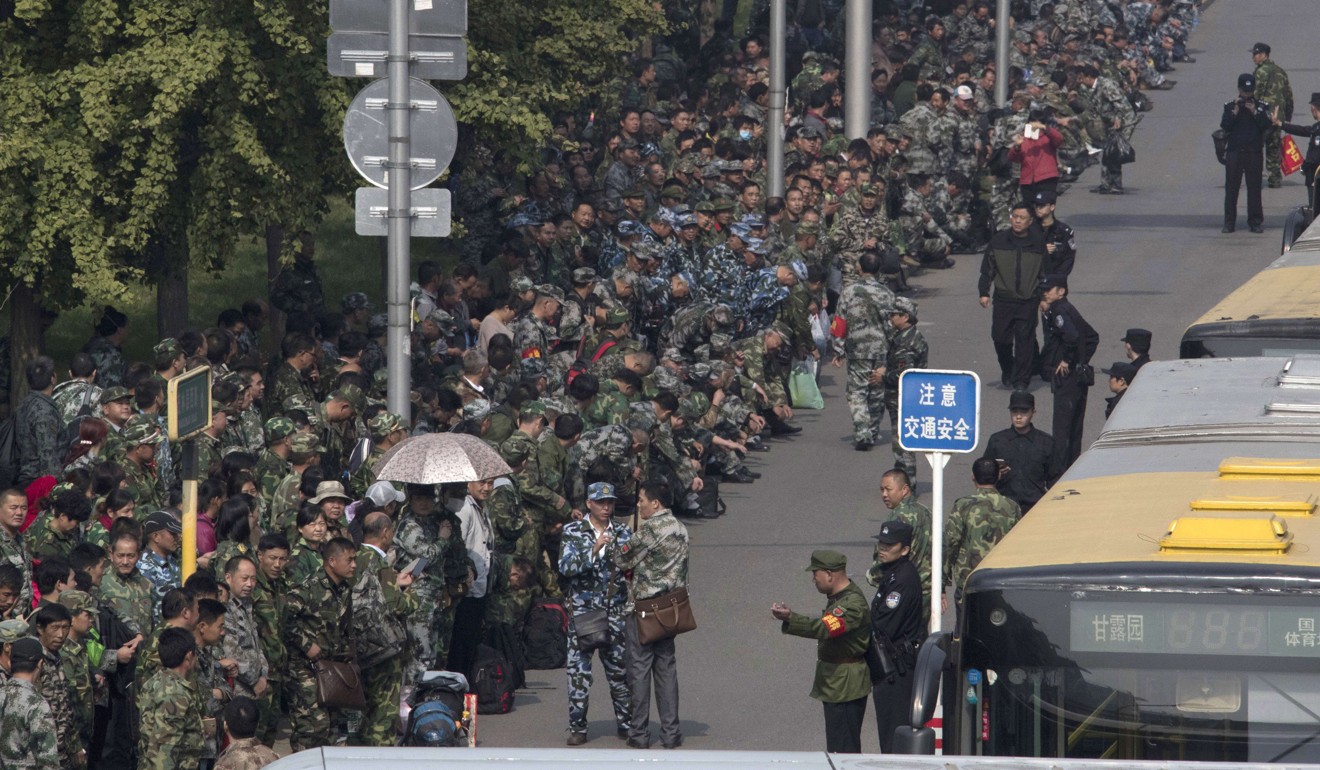
Others who fought in the war blamed the heavy losses – besides the 7,000 fatalities about 15,000 soldiers are estimated to have been injured – on their leaders, whom they accused of underestimating the strength of the opposition. Others spoke of a lack of training and poor understanding of modern combat methods as China had only recently emerged from the decade-long Cultural Revolution.
Many of the veterans were only 17 or 18 when they were sent off to fight, and most had received no more than a few months of basic military training, they said.
The logistics soldier said maintaining a supply chain to the front line ran into trouble soon after the war started, mostly because of poor communication.
“We were supposed to send supplies to them but they were exposed and soon detected by the enemy because they were using really backward communication equipment from the 1950s,” he said.
Didi Chuxing says it employs 3.9 million retired soldiers as drivers
The leader of a veterans’ group in Beijing, who also requested anonymity, said that because the men who died in the Sino-Vietnamese war were not recognised by the PLA it was impossible to get government funding to look after their graves, most of which are dotted around remote areas along the border between the two countries. He and his associates relied heavily on the public’s charity to cover the cost of maintenance work, he said.
Hu from Changsha said that he and other veterans would visit the graves of their fallen comrades once the anniversary had passed.
“Many of them were only 18 or 19 when they died and they weren’t married,” he said. “Most of their parents are gone and we don’t know how much longer we will be able to visit their graves as we’re also getting old.
“Fewer of us are coming to our gatherings, which is the only place we can get some recognition and comfort,” he said.
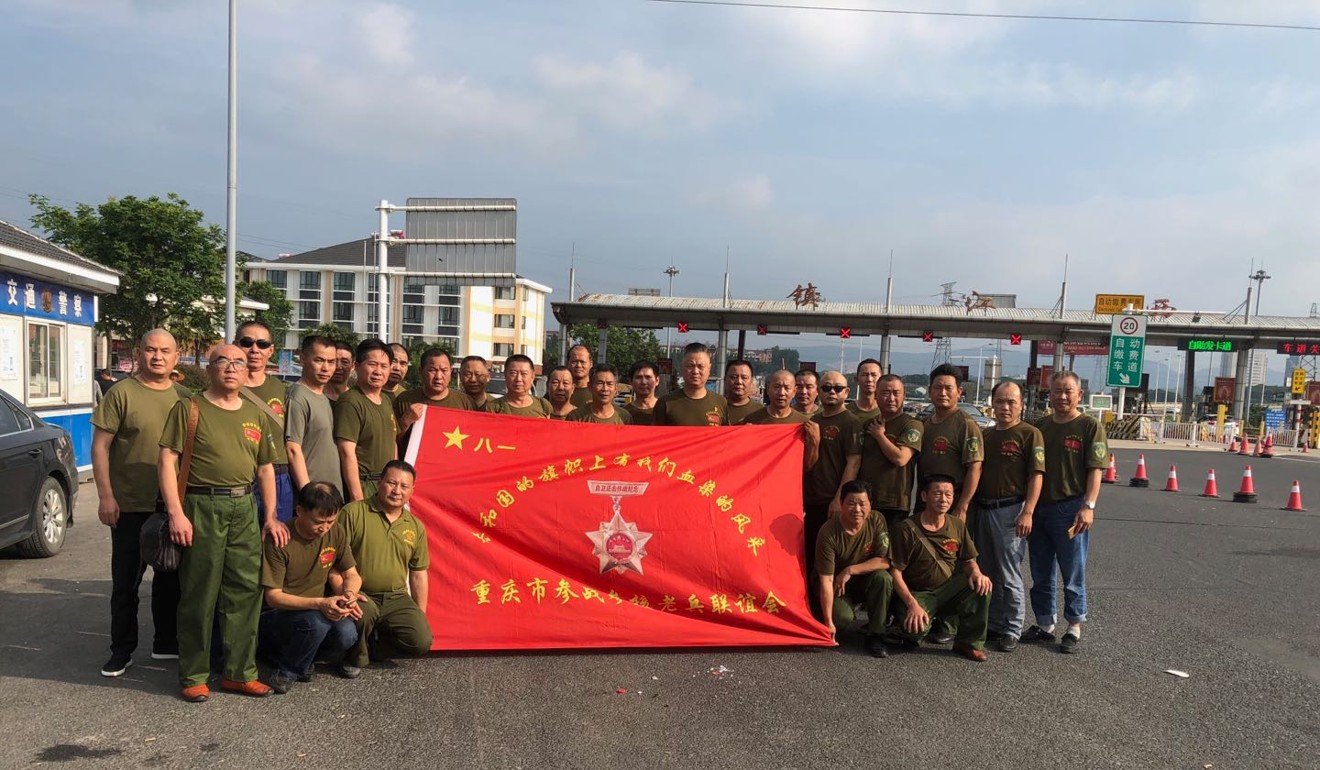
Zhong, who said he had petitioned Beijing almost 10 times for better treatment, said he would continue to fight for his and his comrades’ honour.
“We deserve to be respected and to be able to live with dignity as China is becomes richer and stronger,” he said.
Antony Wong, a military observer based in Macau, said the government and the military should issue a public apology to the veterans of the Sino-Vietnamese war, and accord them the honour and recognition they deserve.
“Beijing should recognise their contribution to the country, and the fact that they suffered because of the leadership’s poor judgment,” he said.
“Only an apology can stop them from organising protests, and help to heal their mental and physical wounds.”


